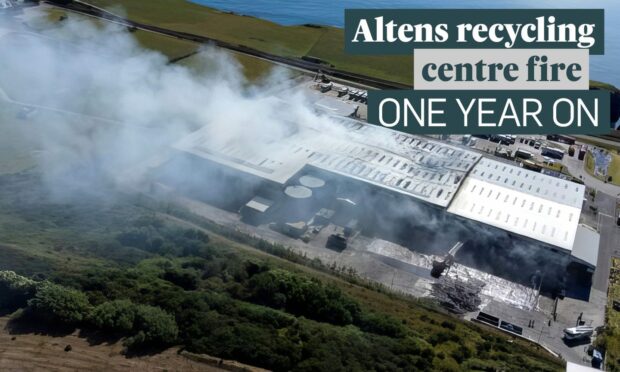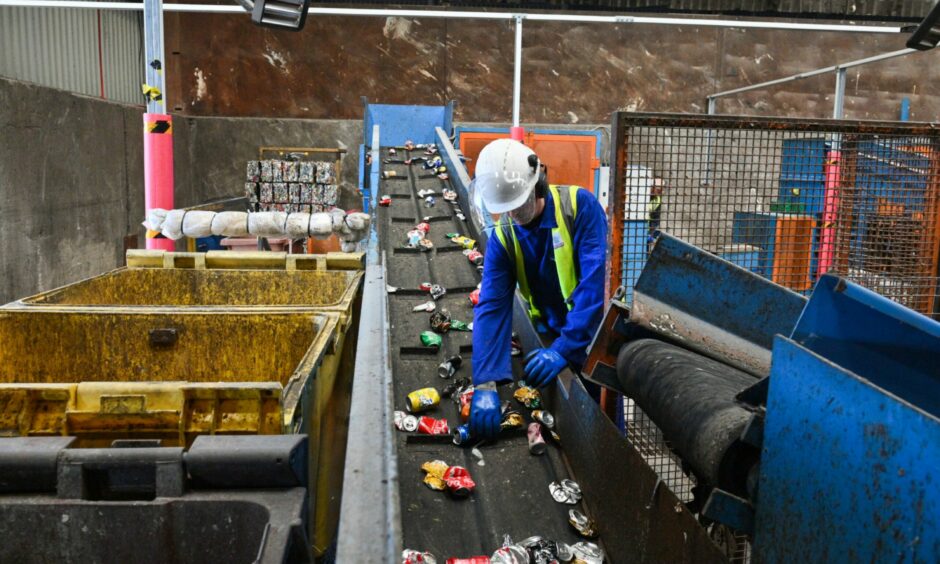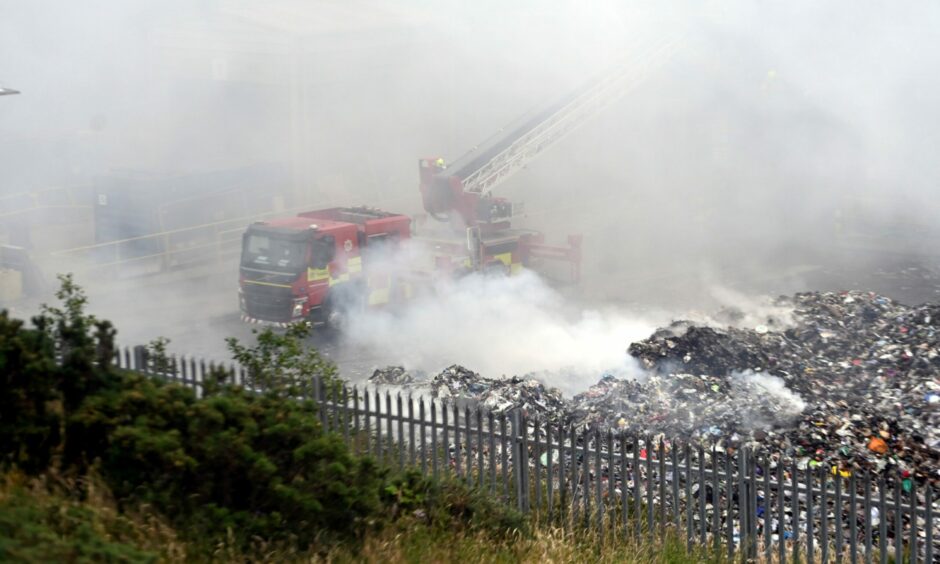We’ve all been there – it’s time to upgrade your phone, or your vape has come to the end of its short lifespan, maybe there’s a stash of dead batteries rattling around in your junk drawer.
Whatever it is, it’s time to get a replacement.
But then – what do you do when it’s time to get rid of the batteries or small electrical item you already have?
It might be tempting to just put them in your general waste, but before reaching for that bin lid you should know that batteries hidden in rubbish cause hundreds of fires across the UK every year.
The huge blaze that destroyed the Altens recycling centre fire in Aberdeen is believed to have been started by such carelessness.
Dead batteries thrown away with other waste and recycling are likely to be crushed or punctured once the waste is collected and processed.
Some battery types can ignite or even explode when they’re damaged in waste collection and treatment processes, setting fire to paper, card, and other waste materials.
People work in waste, not just machines
People are involved in the waste process – from collecting bins, to those working in a recycling centre, and even processing it in a plant like Altens.
While Altens had 115 different types of machines to sort through the different types of waste, there were still people working the picking lines and different stations.
Colin Forshaw, production operations manager at Suez, stressed how important recycling properly can be for the safety of the teams working.
He said: “As well as machinery in these types of facilities, we have people working on picking lines and stations, and it’s important to consider the safety of these guys as well when disposing of vapes and lithium batteries.
“Always think about which container it could go in and whether are they going to create a problem for people working in the facility later down the line.
“What we always encourage people to do is check local recycling details, consider take-back schemes, and put these materials in the correct containers.”
What happened at the Altens recycling centre?
On July 8 last year, a massive fire broke out at the Altens East Recycling and Recovery centre.
Although Suez bosses say they will never be able to pinpoint exactly what sparked the fire it is believed to have been caused by a lithium battery.
The rechargeable battery – often found in electric toothbrushes, mobiles and e-cigarettes – can overheat and lead to a fire that can then spread to other combustible materials.
That means one small rechargable battery, potentially put in a household recycling bin by accident, started a blaze that lasted 118 hours, destroying 80% of the building.
The main building has since been demolished, with bosses planning to rebuild the state-of-the-art centre.
What should you do with batteries and small electricals?
Every council has a different system when it comes to recycling and waste. That in itself probably does add to the confusion about what you can and cannot recycle at home.
Aberdeenshire Council provides households with a battery bag. Residents can then put anything from AA batteries to a laptop battery in the bag.
Once filled it will be collected by Aberdeenshire Council when picking up the other recycling waste.
But, what about those who don’t have a battery bag?
Recycling centres have dedicated recycling bins for unwanted batteries and for small electrical items.
However, if you’re looking for something that bit more convenient most shops have a take-back scheme in place.
This means most shops where you can buy batteries from has a recycling bank for them. Likewise, phone shops and other electrical stores often take back small items to recycle them properly.
You can find your nearest battery recycling point on the Take Charge website here.




